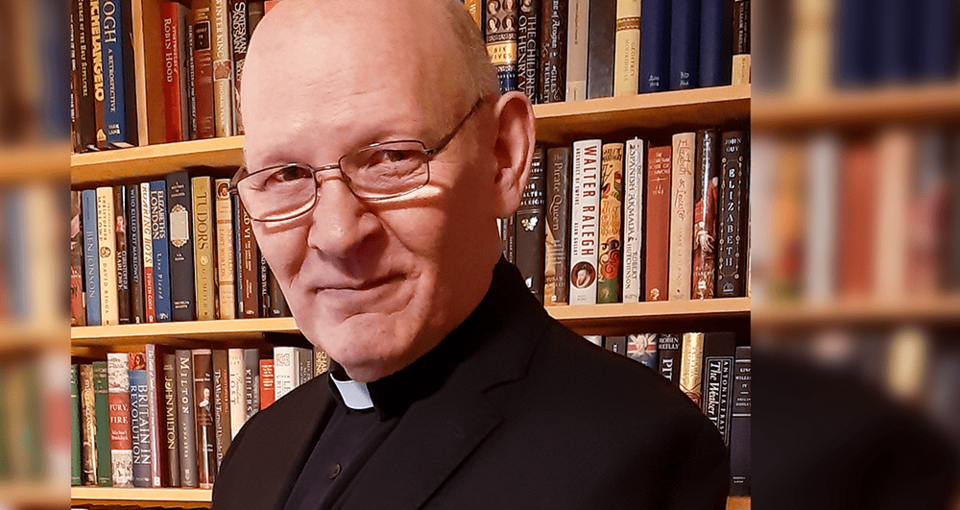I mention this because a few years ago the British bakery Greggs was forced to apologize after it produced an ad depicting a nativity scene with the assorted worshipers praising not the baby Messiah but the aforementioned sausage roll. Silly but harmless. Nope. It caused an uproar, the tabloids became involved, and contrition was needed. It was, apparently, part of the war on Christmas. It’s happened time and time again.
But here, reality cries out to be heard: This was merely an insensitive campaign to sell meat products. More than this, there is not and never has been a war on Christmas, whether it’s the appearance of Happy Holidays cards (so what?), multicultural television commercials (surely a good thing), or carol singers allegedly being banned from shopping malls (they aren’t).
But the sausage roll reveals a sorry irony. If there is a religious war, it is not on the season we have somewhat arbitrarily and relatively recently chosen as the date of Jesus’s birth. Rather, it is an attack against the Christian, egalitarian virtues that the child and the event are supposed to epitomize—a charge led by some Christians and churches themselves.
Some of the loudest and most active Christians tend to be socially conservative and harsh in their opinions of what is new, novel, and challenging, often obsessed with issues such as abortion and homosexuality.
What is expressed repeatedly in the Gospels, however—with a virtual monomania—is love for neighbour. Christ teaches that authentic devotion to God can only by demonstrated by this love, this fraternal romance, and such a love demands social justice, a passion for the poor and marginalized, and a revolutionary understanding of power and morality. If Jesus does condemn anyone, it is the reactionaries, those who have authority, who obscure love under law, and who disguise the kingdom behind formalities and regulations. Instead of opening the doors wide, they close them and bolt them tight.
I have no doubt that those Christians who complain about the ostensible “war on Christmas,” and have such right-wing attitudes about so many subjects, still believe in their religion, and I certainly have no right or ability to look into their souls. But it has all reached a crisis point now, particularly for those of us who embrace a more progressive but nevertheless committed belief in Christianity.
Quite frankly, the antics of the Christian right also turn people away from Christianity, and understandably so. If that’s what Jesus is about, some people say, I want nothing of it.
Don’t forget that one of the leaders of the battle against this chimerical war on Christmas, and a powerful leader of North American Christianity, is Franklin Graham, the son of Billy. He believes that Islam is “very evil and wicked,” admires Vladimir Putin, and demanded that LGBTQ people be barred from churches because Satan “wants to devour our homes.” He also claimed that the election of Donald Trump was due to the “hand of God” at work. Imagine putting all that on a card for Santa.
What he and his friends seem to consider as Christmas is the stuff of tinseled nostalgia mingled with the self-prescribed absolute right of Christians to dominate the public square and dictate the private conscience.
If anything should anger followers of Jesus at Christmas time, it shouldn’t be some irrelevant commercial for food, but rather the fact that millions of people go without food altogether; it shouldn’t be that Jesus’s name is taken in vain but that His teachings are taken in vain; it shouldn’t be that we don’t say “Merry Christmas” as often as we did, but that we so seldom say “I forgive you,” “You are loved,” and “All are welcome in church.”
After all, to the once-ubiquitous question, “What would Jesus do,” the answer would probably be, “Tell everyone to grow up, re-read what the New Testament says, and then go and turn the world upside-down.” Not just at Christmas, but every day of the year.
And while I still watch Frosty the Snowman every Yuletide and love the Dickensian fantasy of the season, if I forget the authentic, revolutionary, life-transforming meaning of it all, I might as well genuflect to the great sausage roll in the sky.
Rev. Michael Coren is an award-winning Toronto-based columnist and author of 18 books, appears regularly on TV and radio, and is also an Anglican priest.


